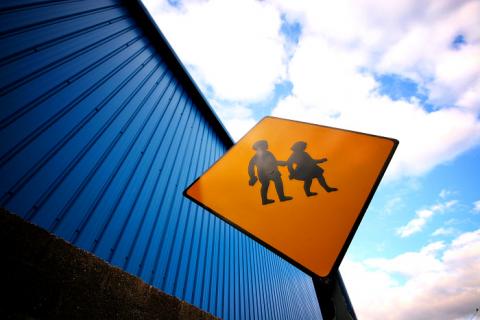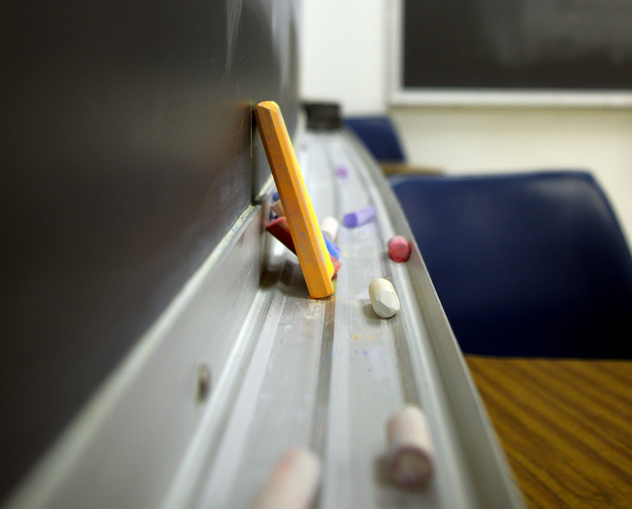Much promised, little delivered in improving Traveller access to education

A successful appeal by a secondary school against a ruling that it had discriminated against a Traveller boy by refusing him admission is one more example of how the Irish education system is neglecting one of the most marginalised communities in the country. By Brian Moran.
A 2006 government report entitled Report and Recommendations for a Traveller Education Strategy says in its mission statement that the Department of Education and Science is “fully committed to ensuring that Travellers receive a high quality, integrated education from early childhood to adult integration.” It set a time frame of five years for its recommendations to be realised.
The recent Clonmel Circuit Court ruling that Christian Brothers High School in Clonmel was not in breach of the Equal Status act when it refused Joe Stokes (13) admission is a direct contradiction of the integrative ethos outlined in the report, which explicitly states that Travellers should have “equality of access, equality of participation and equality of outcome in a fully inclusive education system.” It is very specific and prescriptive about the enrolment policies of schools: “Travellers should have equity of access. Enrolment policies and practices must be specific about their rights to access. If there are issues concerning enrolment they should be challenged and appealed.”
The enrolment policy of Christian Brothers High School - which gives preference to children who had a parent or sibling attend the school previously - was challenged by the Stokes family but ultimately upheld as non-discriminatory by the court. It is difficult to fathom how a Traveller child can have equality of access and participation when a school gives first preference of enrolment to children of past pupils, given that Traveller attendance in schools was miniscule in the 1970s and 1980s.
As Martin Collins, joint director of Pavee Point, put it in his response to the ruling: “It was plain to even the most casual onlooker that the requirement for a parent or older sibling to previously have attended the school perpetuates a discrimination against new communities and Travellers.”

The Department of Education and Science asserts that it is committed towards raising the attendance and achievement level of Traveller children. Currently, enrolment for Traveller children at pre-school is significantly lower than that of settled children. Some 94.3% of Traveller children complete primary level. Just 51% complete the Junior Certificate and only a small percentage transfer to senior cycle. A mere 2.8% of Travellers over the age of 15 complete secondary school, compared to 86.5% among the population as a whole (see here). This results in the majority of Traveller students leaving school with no formal education, no chance of pursuing third level education and little or no chance of transferring to the job market. There is also a huge level of absenteeism among Traveller students, with students at post-primary level absent for half of the school year.
The Department of Education and Science in its 2006 report on Traveller education strategy set out a number of goals for Travellers, namely:
- to obtain access to all mainstream provision
- to participate as equals, achieve their full potential, and have outcomes similar to those of their settled peers
- to gain qualifications, obtain access to mainstream employment, aspire to promotion and participate fully as members of society
It is clearly evident from current statistics that the Government is not realising these goals. Positive actions are needed in order to redress the imbalance in educational outcomes between Traveller children and settled children and provide true equality of opportunity. The Committee to Monitor and Co-Ordinate the Implementation of the Recommendations of the Task Force on the Travelling Community found in its second progress report (2005) that there was a need for a better balance of emphasis between access, enrolment and retention on the one hand and generation of equality of outcomes from educational provision on the other. The committee also called for procedures to ensure that Traveller children have equal access to education provision that is best suited to their needs.
A 2005 report by the Department of Education and Science, Survey of Traveller Education Provision found that some schools either discourage or obstruct the enrolment of Traveller children. This means that in some cases a disproportionate number of Traveller children are attending schools where Travellers are welcome, thus overstretching resources for those particular schools.
The Advisory Committee on Traveller Education reported in 2010 that 62% of Travellers have experienced discrimination at school. It is important to ensure that Traveller culture is understood, respected and celebrated by schools. Each Traveller child must be given equal opportunities to access the full curriculum in an inclusive environment in all aspects of school life. State parties to the FCNM (Framework Convention for the protection of National Minorities), a Europe-wide initiative of which Ireland is a member, agree to promote equal opportunities for all those belonging to national minorities. The advisory committee on the FCNM highlighted the need to combat separation and isolation of Travellers and to ensure there is no direct or indirect bias against them. The committee found that “the educational situation of Travellers remains disconcerting” and noted that “in some cases negative societal attitudes are felt also in schools.”
The Joint North South Traveller Education Conference (2009) placed a great emphasis on the need for interagency co-operation in order to tackle the historically high levels of disadvantage suffered by the Traveller Community with greater linking of education with community, accommodation, health and employment issues. Also emphasised was the need to instill the relevance of post-primary education in the young Traveller person and to create an expectation among Traveller families and schools that many more students can enter the senior cycle in order to break the pattern of early-school leaving.
Wider issues affect the Traveller community, including poverty, poor health, high suicide rates, discrimination and limited access and utilization of state services. Improvements in education provision for Travellers can help address these problems. The Irish Education system needs to bring its policies in line with Article 26 (2) of the Universal Declaration of Human Rights, where there is a recognition that education should be provided in a manner which promotes “understanding, tolerance and friendship among all nations, racial, or religious groups.” Court rulings like the recent case in Tipperary contravene this principle, and, according to Martin Collins of Pavee Point: “copper-fasten an unnecessary state funded discrimination, [making] it harder to bring about the educational revolution Travellers need to break the cycle of dependency and underachievement suffered by our community.”
Image top: Donncha O'Caoimh.
Image middle: Sterlic.
{jathumbnailoff}
